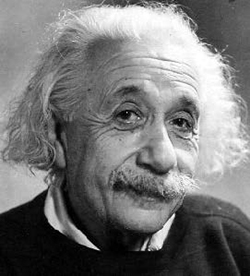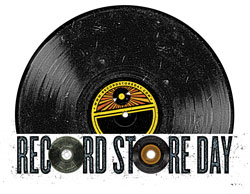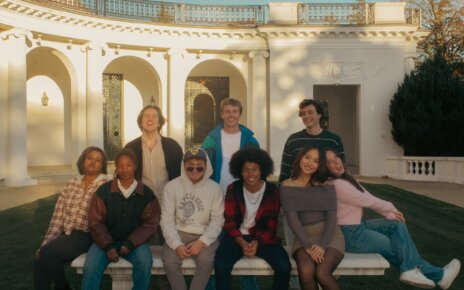This past Monday, December 3, I saw a very exciting and involving documentary called Dyslexia: The Movie, directed by Harvey Hubbell V.
This was part of this year’s On Screen, In Person film series, once again moderated by University specialist professor Andrew Demirjian, who chose this film, along with a committee of people, “Because I think it operates on lots of different levels, it’s really smart, it’s really funny, and it has an important message and it really makes you reconsider how you view other people and how you think about disabilities.” Did I think it operated on different levels, was smart, was really funny and carried an important message? Read on and find out.
In this film, Hubbell, a dyslexic himself, seeks to inform and educate the audience through his own life experiences as well as by discussing the topic with people who are researching dyslexia.
It also involved other dyslexic individuals who came forward about their lives and how they deal with the condition. Many of them were celebrities such as Billy Bob Thornton, Sarah Joy Brown, and Steven J. Cannell, the creator of television shows such as 21 Jump Street.
Sprinkled throughout the film are facts about dyslexia and clips of Hubbell randomly asking people on the street what dyslexia is. Many people knew of it, but a lot of people, sadly, can’t give him an exact definition.
Though the subject is serious, Hubbell lightens up the film without mocking the subject or making it inappropriate. When facts are shown on screen the music becomes cartoony and the film moves a little faster. Hubbell also wants the audience to have a fun time while watching and he makes fun of the stereotypes surrounding dyslexia. Hubbell himself is excited by the celebrities he interviews and that makes him very relatable to the audience.
Not only is he passionate about what he is doing, he has a good time doing it. I asked him what the most rewarding experience about making the film was and he responded, “Times like this, when I’m talking to people and spreading the word, and people come up to me and say, ‘Hey that’s the story of my life.’ Basically we all share the same exact situation all the time.” Regarding the reason why he went the documentary route he stated, “when you tell the story from the truth we did a documentary because it’s where the truth is.”
The film does chug along at a very good pace; not fast but certainly not slow. There is plenty of information throughout the film. This film mixes comedy, facts, and awareness with ease. It’s not jarring and it gets the point across. When appropriate, the film will speed up, but it stays focused and engaging.
The choices for interviews are both interesting and personal. By interviewing celebrities, the film shows the audience that even people who are successful and famous aren’t invincible. Their stories about growing up with the condition is both inspirational and uplifting.
Hubbell interviews his family about what it was like for him to grow up. He openly discusses that he didn’t have the best childhood to the point that he didn’t feel free until after high school. The film stresses that family is very important at times like these. His family was very supportive and his sister describes him as a “challenge” with a chuckle. By structuring the film around his life as a dyslexic, the film has a central “character,” not a “subject,” to focus on.
I was invested in the film throughout the showing. This is one of the most enjoyable documentaries that I’ve seen, and I have seen a lot throughout my life. Normally they are interesting, informational, and do get their point across, but enjoyable is not one of the words I’d use to describe them.
I learned deep information,such as that fifteen to thirty-five million people suffer from dyslexia and ten percent of the prison population in America can’t read.
Similarly, I learned that Einstein was dyslexic and had his mother read to him.
Billy Bob Thornton describes having dyslexia as like seeing a ghost.
Another fact stated during the film was that no one really knew about dyslexia until the printing press was made.
Following the film was a panel discussion, moderated by the director, featuring the following experts in dyslexia: Dr. Gordon Sherman, Executive Director of the Newgrange School & leader in the field of dyslexia research; Dee Rosenberg, Assistant Director of the Newsgroup School; G. Emerson Dickman Esq., an attorney specializing in the representation of children with disabilities; Beth Ravelli, a parent advocate and a member of the New Jersey Reading Disability Task Force; and Catherine N. Duckett, the Associate Dean of the Monmouth University School of Science.
These individuals came prepared to tell the audience what we can do to help with the study of dyslexia which showed how passionately involved they were. Even when they couldn’t give the audience every single bit of information asked for, the panel gave the audience an idea on where to start and what to do next.
If you are fan of documentaries, I highly recommend this one. It has plenty of facts, but it does not drag or bore. There is a lot of information that will be new to audiences who haven’t seen it.
University junior radio and television major, Jason Kane, thought, “It was very intriguing. I didn’t really know anything about this topic. I, like the rest of the general public thought it was just reading backwards, so it was very eye opening.”
Even if you just like to watch documentaries on a rainy day and relax, put this towards the top of your list.
Films like these remind us that everyone has problems- and we can all triumph over them. I’d like to see more personal documentaries such as this one.




